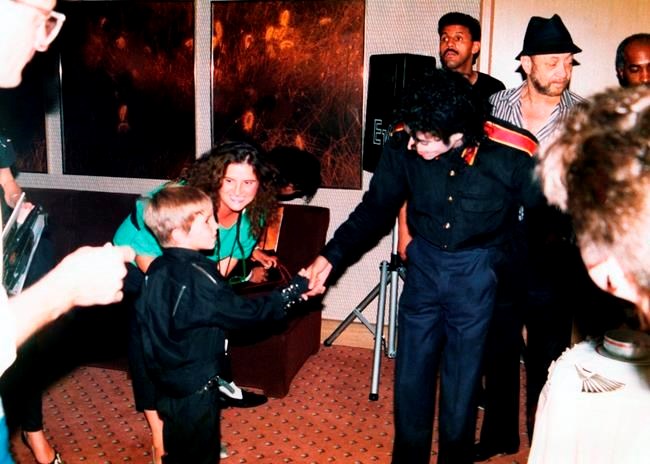Even though the speculation and stories about Michael Jackson and child abuse have been in the news and in the courts for decades, the release of the new documentary Leaving Neverland has prompted some radio stations to pull Jackson’s music from their playlists.
I watched the Leaving Neverland documentary and it was powerful. I am certain the way the four-hour documentary tells the story is going to change the way people listen to stories of abuse.
Ever since watching this film, I have been thinking about how the two men in the film shared their stories of childhood sexual abuse. They spoke candidly and without shame. It takes a lot of courage to do that, especially with millions of people ready to call them liars.
Wade Robson and James Safechuck gave graphic details of the abuse they endured, and as I listened to their accounts, I thought that they were breaking down barriers for other people to come forward and share their stories. The more these types of stories and victims can be given these platforms, the more likely other people will be to come forward and seek help sooner.
I think there is still more stigma attached to male victims of abuse. Robson and Safechuck shared their experiences in a way that demonstrated that there is no shame in being a male abused by another male. I can only imagine other male victims could gain strength by seeing these interviews.
The backlash of people accusing these two men of being liars looking for money is something that can keep victims of abuse from coming forward. People say these two men denied the abuse for so many years, they must be lying because they denied it in the past.
As I watched this film, I was reminded of an unfortunate situation that occurred while I was in middle school. There was a boy whom I called my friend, who was pretty awful to me.
He was cruel to a lot of kids, but undoubtedly to me the most. One day, a group of students decided to go to the principal and tell him what this boy was doing. They tried to get me to join them, because he was the worst to me. I refused and begged them not to say my name.
They went forward and he was arrested. The students did say my name and I found myself in the principal’s office. He was asking me to say what happened. I answered that nothing had happened.
The school called my mother, who also asked me if anything happened and I denied it. Two police officers came to my school one day and pulled me out of class, trying to get me to talk.
In my young mind, it was really complicated. I considered this boy my friend and we would hang out a lot together in our group of friends. I didn’t like how he treated me, but he also didn’t do it all the time.
Every adult who asked me what happened followed up with: “If something happened you would tell me, right?” and I told them that I would, just so the questions would stop.
Later, the case went to court and I stayed mum on the issue. Before the trial began, the boy called me and asked me to testify for him. His mother also called me and begged me to testify for her son. She was the only person whom I told that he had done it to me, too. I told her that I couldn’t testify for him.
He was found guilty and spent some time in juvenile detention. I never spoke to him again.
I hadn’t thought of this experience in years and it was only during this film that it all came back.
I don’t think the conversation has to be about whether we listen to Jackson’s music; that’s a personal choice and it’s always been a personal choice. I think the conversation has to be about creating safe places for people to come forward when they have something really hard to say.
It’s also crucial to understand why people might deny being a victim as a child and that doesn’t mean they are liars when they admit to it as an adult.
Charla Huber is the director of communications and Indigenous relations for M’akola Group of Societies.



